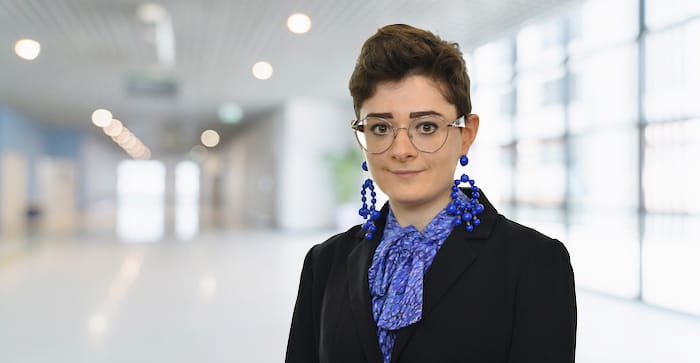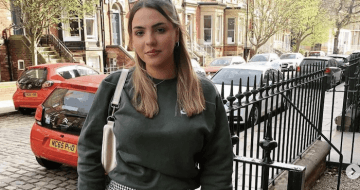Trainee solicitor Concetta Scrimshaw on the freedom of living her truth and why dialogue is vital in breaking down stigma

Earlier this year, I was diagnosed with autism at the age of 24. In one way, it was an enormous relief. I have always felt my brain worked differently but couldn’t put my finger on why. Now I have an answer. With diagnosis came clarity, understanding, knowledge, relief — and freedom to finally live my truth.
Twenty-four is quite a late age at which to be diagnosed, but it is becoming increasingly common for women in particular to be diagnosed with autism in adulthood, because they learn to fit in and appear neurotypical throughout their lives, so they fly under the radar — this is known as “masking”. At first glance, I appear neurotypical, but those who know me very well are aware of the quirks that make me autistic.
I have written this article because I think it is really important to speak out and raise awareness of autism and neurodiversity within the legal profession. The sad fact of the matter is that I don’t know any openly autistic lawyers — maybe this is because they would rather manage their condition alone due to perceived stigma, or because they think it will hamper their career. However, statistically speaking, there will be other autistic and neurodiverse individuals in the legal profession. Giving these people a voice is critical.
Firms have a vital role to play in supporting this. At Pinsent Masons, where I am a trainee, we have a Disability Network and a specific Neurodiversity Network. Both work to support people across the business in their day-to-day working lives. It’s heartening and encouraging to see the firm make such significant strides in enabling its neurodiverse community and providing a forum for support and education.
The legal industry has come a long way. But inclusion is a journey rather than a destination and firms should always be seeking to adapt, improve and advance. Recruitment practices should facilitate the attraction of neurodiverse talent in a range of ways such as advertising an accessible assessment centre. For example, clearly setting out what to expect on the day, ensuring that any sensory needs are met (quiet room/no harsh lighting etc.), and providing equipment that might support neurodiverse candidates, such as noise-cancelling headphones.
The use of both in-person and virtual recruitment events serve to broaden access for all students and graduates, featuring neurodiverse employees speaking about their experiences of the legal profession. Regularly inviting dynamic and engaging speakers to be a prominent feature of the training programme to help inform and educate is incredibly powerful and demonstrates a commitment to representation. Preferably these speakers would have experience with neurodiversity or be neurodiverse themselves and be far more interesting than simple tick-box online training, which can also be quite patronising.
My experience is that people are often surprised when I disclose that I am autistic and say things like, “You can’t tell!” I know that they are not trying to be offensive, but it betrays a lack of understanding of how autism can present itself (particularly in adult women) and also assumes that being autistic is inherently deficient in some way; that it is good that it is not outwardly obvious. Actually, being autistic can be amazing! Proper education and training would hopefully go some of the way to debunking common myths surrounding autism and neurodiversity.
I think it’s important that neurodiverse employees are open about any conditions that need reasonable adjustments, so that the firm knows how to support them best and help them thrive. Furthermore, it’s also key that line managers know how to signpost support to the disabled individual in the first instance. Again, if autistic and other neurodiverse individuals feel confident in sharing their story, then awareness and support will hopefully become better, as will the signposting.
The issue of adult autism diagnoses (particularly for women) has recently been discussed a bit more in the mainstream media. The Organisation for Autism Research has found that 50% of boys with autism are diagnosed before age 11, and only 20% of females with autism are diagnosed prior to this age. Scientists believe that this is because females are better at “masking” their autistic traits. The legal profession now has an opportunity to embrace this momentum around late and female diagnoses and promote an environment in which everyone feels empowered and confident to be open about their experiences at work. After all, being able to be yourself at work and access the support you need is the foundation to a fulfilling career.
I don’t want aspiring autistic lawyers to feel like I did; like there are no role models and that they cannot be themselves at work. If reading this encourages even one individual to seek a diagnosis, or be open about an existing diagnosis, then that can only be a good thing in enabling an important dialogue and breaking down the stigma.
Concetta is a trainee solicitor in the property team at Pinsent Masons.


